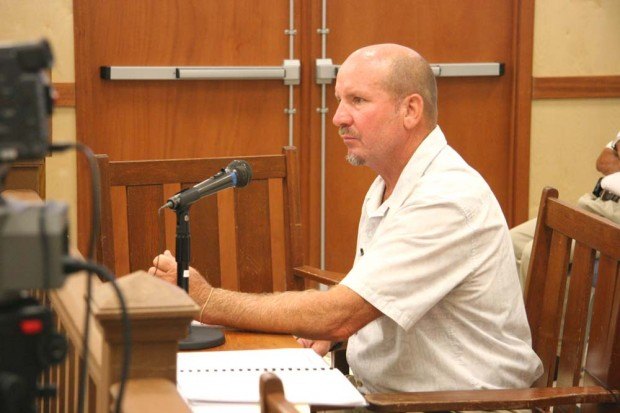NAWILIWILI — An unfunded federal mandate that the state passed down to the four counties will likely increase expenses for Kaua‘i in the near future, officials said last week. The federal Real ID Act of 2005 mandates that by Dec.
NAWILIWILI — An unfunded federal mandate that the state passed down to the four counties will likely increase expenses for Kaua‘i in the near future, officials said last week.
The federal Real ID Act of 2005 mandates that by Dec. 1, 2014, a specially made ID will be required to board airplanes or carry federal government business.
“If you want to fly on a commercial aircraft or enter a federal building you are going to have to have this Real ID, either a driver’s license or a state ID,” County Treasurer David Spanski told Kaua‘i County Council members during a budget review session Thursday.
Spanski is asking the council for $35,000 to fill a dollar-funded position that would provide assistance in the implementation of the mandate. Hawai‘i is the only state in the nation where the state government issues state IDs, and county governments issue drivers’ licenses.
“We’ve got to commingle those things,” Spanski said.
To comply with the federal mandate, the state last year enacted the Legal Presence Act 38, requiring the county examiner of drivers to verify that driver’s license applicants have legal status in the United States.
The Department of Homeland Security expects the county to be in full compliance by January 2013, according to Spanski.
He said the end result is the mandate will create more work and security measures for the county Department of Motor Vehicles, increasing expenses.
Federal unfunded mandates usually impose extra costs on state or local governments, and non-compliance could threaten issuance of federal grants.
“I like that term, my gosh, unfunded mandate,” Council Chair Jay Furfaro said, reacting to Spanski’s presentation at a budget review session.
“This is all because of terrorist attacks?” Councilwoman JoAnn Yukimura said.
“It’s ridiculous.”
Even children will have to comply, because the mandate is not age-specific, Spanski said.
County Finance Director Wally Rezentes Jr. said that it’s been highly publicized that a number of states weren’t “happy” they weren’t being provided adequate funding to implement this federal program.
“They are going to provide some funding for some of the infrastructure improvements,” he said. “But the day-to-day operational cost items, we won’t receive the funding to make ourselves whole.”
Real ID requirements
The mandate requires those applying for the Real ID to provide proof of citizenship in the U.S. or lawful immigrant status.
There are about 29,000 licensed drivers on Kaua‘i who will need to be re-processed to be in compliance with the mandate, according to Spanski.
The Real ID Act will also require several changes in infrastructure, Spanski said in his presentation to the council.
The DMV will have to install security cameras, modify facilities to limit public access to sensitive equipment and storage locations for card production materials. Electronic detection equipment and security alarms will also need upgrades.
To ensure all state DMVs are interoperable, an Information Technology systems overhaul will be needed, including installing personal security software and electronic immigration verification system, he said.
Tamper-resistant documents will be issued with enhanced security features, using facial recognition software to detect people with multiple identity documents.
Equipment will also have to be upgraded. This will include document scanners, high-resolution digital scanners and high-speed printers.
To minimize potential insider fraud the DMV will have to convert over-the-counter issuance to a more secured central issuance process.
• Léo Azambuja, staff writer, can be reached at 245-3681 (ext. 252) or lazambuja@ thegardenisland.com.


